Last night I walked to the hospital. Students in their uniforms were crowded around the windows of the hospital wards taking advantage of any escaping light to study for their exams. I was going to visit a critical patient. She had come in on the weekend with labored breathing. On my first time to examine her she was in the tripod position trying to get breath. Drops of sweat were beading on her face and she moaned with each movement. Her lungs were filled with fluid that also swelled in her legs and stretched the skin tight. Because of the fluid she could not lie down to sleep. This woman was on my mind, and I had asked Dr. Louise if she could get more Lasix. Louise said that if her systolic blood pressure was over 95, that I could give more if I wanted. My cuff was too big for her shrunken arm. The last reading from the afternoon was 100/80, and I asked the night guard to give it.
This woman was my age. She was HIV+ and her husband had left. She had two children and worked on their farm. Last year her CD4 count was 266 but she was lost to follow up and never was treated with ARVs. She had been coughing for three months. She came to the hospital because breathing had become painful.
Because of her history and the high incidence with AIDS, Tuberculosis with an effusion was at the top of the differential even though her PPD was negative: in immuno-suppressed patients there are many false negatives because it requires an immune response to show a positive result. Shyira has no Xray, but an exam was sufficient to realize there was a problem. On exam her lungs sounded crackly all over with expiratory wheezes. The oxygen saturation of her blood was 84%. Her lungs were dull to percussion because of the fluid. When fluid was drained it contained 1400 wbc/mm3. TB treatments were begun. Augmentin was added in case the pneumonia was bacterial. Bactrim was added in case the pneumonia was PCP, also common in HIV patients. There was likely cardiac involvement. I could hear an S3 gallop on auscultation. She had been given Lasix to remove the excess fluid and a blood transfusion when she became very anemic.
When I entered the ward this morning I noticed her bed was empty. The nurse noticed my gaze and told me, "The madame has died in the night."
I wonder how, in a hospital room that holds twenty beds side by side, how the death of one affects the others in the dark night. Does the room grow anxious as she cries? Do the others wake to offer condolences to the family staying with her? Do they mourn? Offer help? Or do they remain asleep...just like the rest of us.
Over two million people died of AIDS in sub-Saharan Africa last year. That was 72% of AIDS deaths in the whole world. I wonder what will happen to these countries laden with this burden of HIV. Will others offer help, money, interest? Will we stay comfortably asleep?
Subscribe to:
Post Comments (Atom)


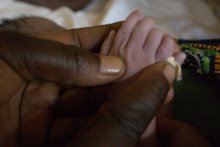

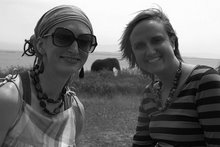
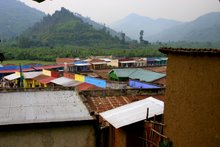
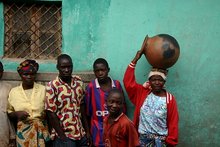
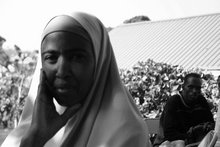
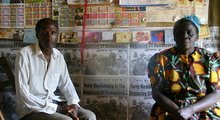
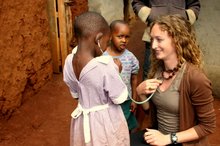
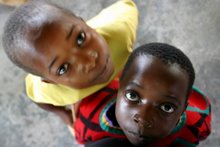

2 comments:
Erika,
I know Sunny's been linked up to your page for a couple weeks, but this was the first chance I had to come over and read about the work you're doing. I am so proud of you and the blessing you are to so many. I'm sure this experience has been / will be a great one, but I'm so thankful that you've chosen to be Christ in such a meaningful context. God bless.
Hello Erika,
I found your blog by googling PA's and Africa. I enjoy reading your stories and seeing pictures. Just wanted you to feel encouraged and know that it seems the highest thing to me...the priviledge of being able to take part in healing...especially those who will never be "known" by the world. I know that the Lord wants better for His children...and that's what you are giving them.
-avee
Post a Comment